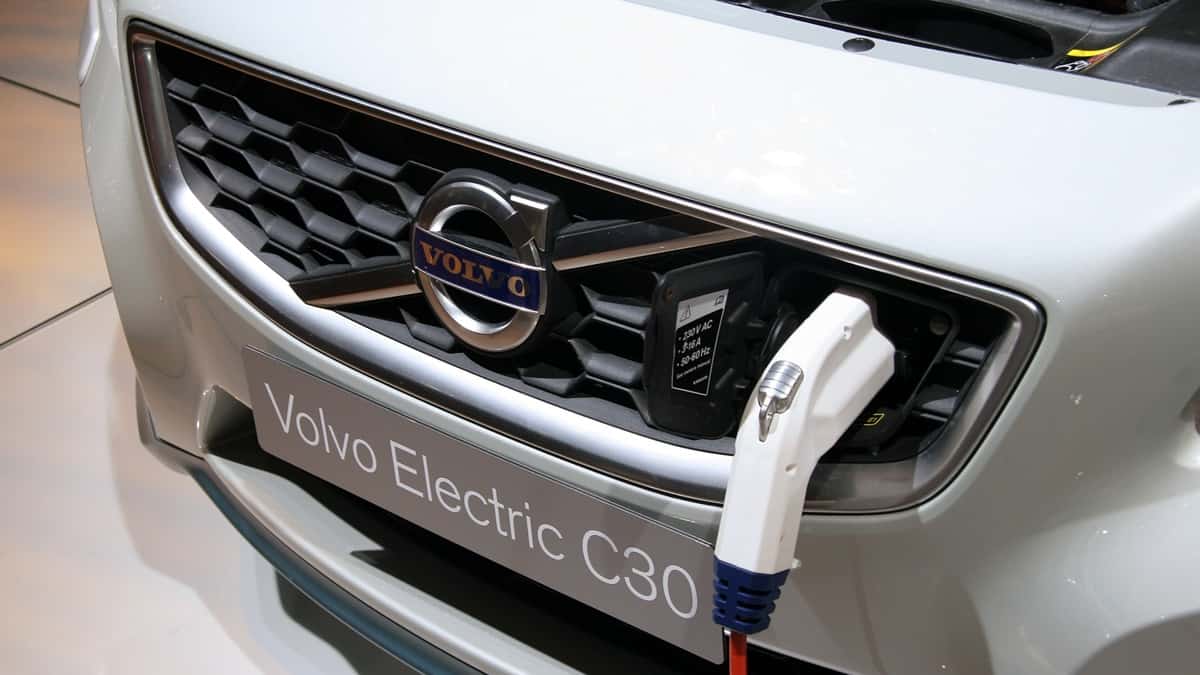Volvo Australia has decided to speed up its shift to electric, promising to sell only EVs in Australia by 2026, ahead of the automaker’s global commitment to do this by 2030, as per The Driven.
Volvo Australia to offer only EVs by 2026
Volvo Australia managing director Stephen Connor announced the new commitment following the official launch in Australia of the new C40 Recharge – its first all-electric SUV, adding to the XC40 that is currently on the market and the EX90 that will come soon.
Connor said the decision had been taken because there is no long-term future in internal combustion engine (ICE) vehicles. Despite Australia’s relatively slow take-up of EVs, its customers seem ready to shift.
“The earlier deadline will allow us to meet the expectations of our Australian customers and be part of the solution when it comes to fighting climate change,” said Connor.
“Sustainability is as important as safety to us, with climate action having the highest priority.”
Electric Vehicle Council chief executive Behyad Jafari says it is a “truly remarkable announcement” from Volvo.
“It shows they appreciate the momentum for EVs building in the Australian market and they see the opportunities in meeting the demand,” says Jafari.
“Most Australians now want an electric car – the problem is a lack of supply and a lack of choice. Having Volvo plug part of this gap will make a significant difference.”
Four years ahead of Volvo’s 2030 global commitment
The commitment is four years advanced of the global commitment declared by Volvo Cars in early 2021, intending to only sell all-electric cars by 2030 and strike out any vehicles, including hybrids, in its global portfolio with an internal combustion engine.”
“To remain successful, we need profitable growth,” then-chief executive Håkan Samuelsson said. “So instead of investing in a shrinking business, we choose to invest in the future – electric and online. We are focused on becoming a leader in the fast-growing premium electric segment.”
In addition, Volvo Trucks is moving rapidly, becoming the first-ever to begin series production of heavy-duty electric trucks, aiming to have 50% electric sales globally by 2030 and 70% in Europe.
Zero emissions strategy & fully-climate neutral
Volvo is also putting its money into an overall zero emissions strategy. It is dedicated to being a fully climate-neutral company by 2040, reducing overall vehicle CO2 emissions by 40% by 2025.
Europe sales record
Currently, its manufacturing plants operate on 80% hydroelectric energy. The previous year, its Torslanda (Sweden) car plant became its first ‘climate neutral’ one.
In September 2022, European plug-in electric vehicles (PEVs) sales achieved 24% of all new car sales. Full-battery EVs (BEVs) make up two-thirds of these. The other third is plug-in hybrids (PHEVs).
Furthermore, in sales numbers, this accounts for nearly a quarter of a million new PEVs sold in a month. That market size and the percentage would be impressive to sell EVs, especially as EV numbers increase and ICE car sales drop.
However, in Australia, PEV sales are likely to amount to no more than perhaps 3.7 to 4% (over 40,000 PEVs) of yearly light vehicle sales for 2022.
Given the low sales percentage and volume, Australia has a way to go for EVs to hit the roads in significant numbers.
Volvo Australia aims to sell 20,000 EVs annually
Volvo Australia’s goal is to sell 20,000 all-electric cars annually, giving it a larger share of the EV market than it does in the current overall passenger car market.
It anticipates EVs to amount to 80% of its annual sales by 2025, and Connor says the most challenging part is to convince the last 20%.
“The decision to sell only electric cars from 2026 makes perfect sense, and we believe it will give us a strategic advantage in the Australian market,” he said.
“the final piece of the jigsaw will be converting the last 20 per cent of our customers to a fully electric future from 2026.”
Volvo’s 75 kW DC charging
Alongside the announcement is a commitment to install DC charging of at least 75kW in all Volvo dealers. It includes free charging as part of their after-sales customer service program.

